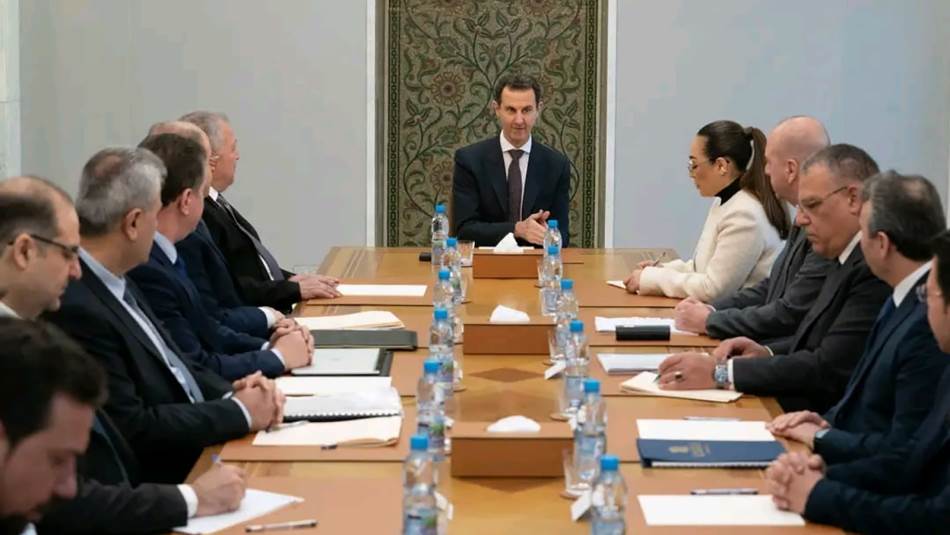In the shadowy corridors of Damascus’s power, a recent proclamation by President Bashar al-Assad has ignited discussions, heralding an ostensible pivot towards championing small and micro-enterprises. This declaration, emerging from a high-profile meeting on March 18, 2024, ostensibly signals the regime’s newfound commitment to these vital yet long-neglected economic lifelines. However, this purported shift is met with skepticism and derision, seen by many as a mere performative act in a country where small businesses have historically been ensnared in bureaucratic quagmires and systemic neglect.
The Assad regime’s sudden zeal for small-scale entrepreneurship, amid the backdrop of economic isolation and diminishing hopes for Arab reconciliation and foreign investment, strikes a discordant note. Critics argue that this initiative, draped in the language of economic revival and support, is deeply ironic given the regime’s track record of stifling economic diversity and innovation. The revelation of a labyrinthine bureaucracy overseeing project licensing further underscores the systemic barriers erected against small business growth, necessitating bribes and navigating a maze of 20 planning agencies, 27 regulatory bodies, and 40 implementation entities.
Pro-regime media’s portrayal of Assad as the savior of small businesses, employing grandiose and religiously charged metaphors of “resurrection,” has only fueled ridicule. This narrative starkly contrasts with the regime’s historical clampdown on economic activities, favoring the elite and those with government ties, at the expense of the broader economy.
Despite Assad’s pronouncements on nurturing small projects to bolster the Syrian economy, the reality is starkly different. Restrictive policies on banking, internal transfers, imports, and real estate transactions have throttled economic development. These obstacles, combined with exorbitant taxes and the logistical challenges of transporting goods, paint a grim picture for small enterprises.
Amid this skepticism, there are faint glimmers of positive change, such as the establishment of a national project register and the Small and Medium Enterprises Development Authority’s collaboration with the United Nations Development Program (UNDP). These efforts, however, are seen by many as too little, too late, and insufficient to counterbalance the regime’s oppressive economic framework.
Assad’s strategic pivot towards small and micro-enterprises, while presented as an economic lifeline, is viewed critically as a tactical maneuver to shore up the regime’s image and attract international investments under the guise of supporting early recovery projects. This so-called “resurrection” of small enterprises is scrutinized as an exploitative strategy rather than a genuine commitment to economic revitalization, casting doubt on the feasibility of real change in Syria’s restrictive economic landscape.
This article was translated and edited by The Syrian Observer. The Syrian Observer has not verified the content of this story. Responsibility for the information and views set out in this article lies entirely with the author.


